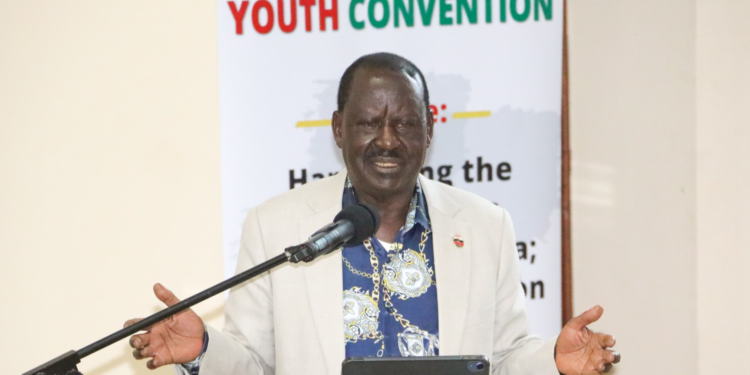Azimio leader Raila Odinga has reaffirmed his dedication to addressing the pressing concerns of Kenya’s young generation. Accusations that he has lost focus on his mission and aligned himself with the government prompted Odinga to outline a comprehensive plan for justice and reform, highlighting his unwavering support for youth-driven change.
Odinga’s statement, delivered this morning, underscores his commitment to prioritizing justice before engaging in any national dialogues. “I agree that JUSTICE must come first before any talks,” Odinga asserted, emphasizing the need for concrete actions to address police brutality and other grievances.
He detailed several key demands, including compensation for victims of police violence, dismissal of protest-related cases, the release of detainees, and prosecution of security personnel involved in atrocities against peaceful protesters.
The veteran politician also called for the resolution of critical issues in healthcare and education, advocating for the welfare of healthcare workers and Junior Secondary School (JSS) teachers. He proposed reverting public healthcare insurance back to the National Hospital Insurance Fund (NHIF) and discarding the proposed Social Health Insurance Fund (SHIF).
Odinga’s plan extends beyond immediate justice measures to encompass broader national and constitutional issues. He proposed a National Conversation to be conducted transparently in a neutral venue, involving representatives from various sectors, including youth, government, religious leaders, healthcare professionals, lawyers, and teachers. This dialogue aims to address critical topics such as good governance, the skyrocketing cost of living, eradicating tribalism, fighting corruption, and improving debt and fiscal management.
“To the young people of Kenya, you all must know that I am deeply moved by your dedication to the cause; and I believe a structured dialogue will bring the reforms you are fighting for and safeguard Kenya for your future,” Odinga stated, acknowledging the resilience and determination of the youth.
Odinga’s response comes at a critical juncture, as the youth, representing a significant portion of Kenya’s population, have been increasingly vocal about their frustrations with the current state of affairs. The accusations against Odinga reflect a broader sentiment among young Kenyans who feel marginalized and disillusioned with the political establishment.
Raila’s emphasis on justice and structured dialogue seeks to bridge the gap between the government and the youth, aiming to restore trust and foster meaningful reforms. By addressing the core issues that affect the daily lives of Kenyans, Odinga hopes to reinvigorate the nation’s democratic processes and ensure a brighter future for the next generation.












